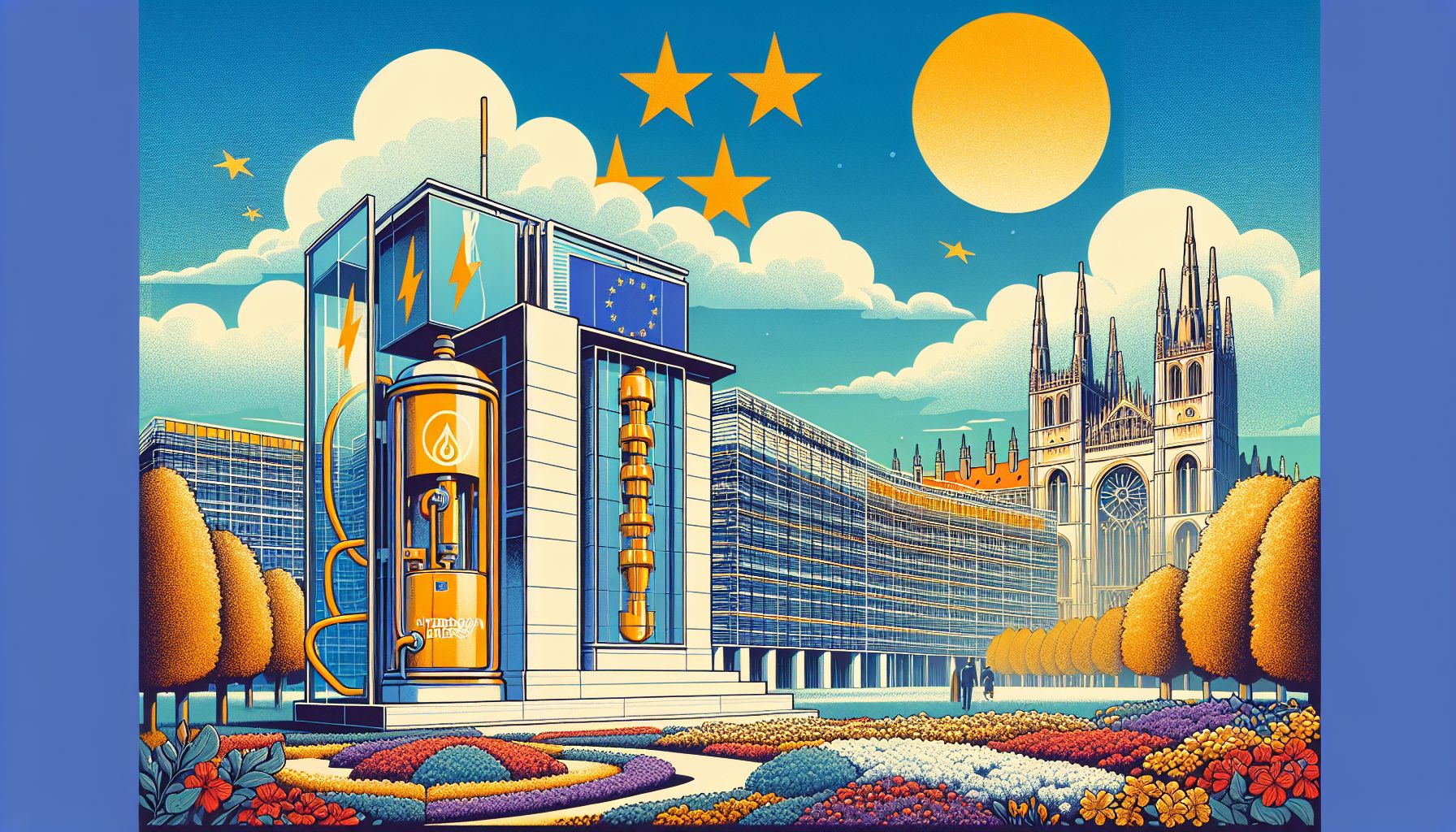eu market reforms enhance hydrogen energy development

The European Commission has approved reforms to the electricity and gas markets to promote hydrogen energy, aiming to ensure clean and secure energy solutions across Europe.
A New Era for Hydrogen
Today marks a significant milestone in the European Union’s quest for clean energy as the European Commission approved sweeping reforms in the electricity and gas markets, specifically targeting the enhancement of hydrogen energy. These reforms, outlined in the new regulatory framework, are designed to promote the adoption of hydrogen and other decarbonized gases, which are essential for reducing greenhouse gas emissions and ensuring energy security across the continent.
Benefits for Consumers and Businesses
The reforms bring a host of benefits to both consumers and businesses. Consumers can look forward to more stable energy prices and a reduced dependency on fossil fuels. They will also have access to a wider range of contracts, including options to lock in long-term prices and dynamic pricing contracts that allow them to take advantage of price fluctuations. Vulnerable and energy-poor consumers are given added protection from disconnection and guaranteed supply through designated suppliers of last resort.
Market Dynamics and Hydrogen Production
For businesses, the new framework promises more predictable energy costs, which is crucial for maintaining competitiveness in a global market. The regulatory changes are expected to lower the costs of renewable energy, making it more accessible and attractive for both households and companies. The creation of a hydrogen market is particularly noteworthy, as it will help curb emissions from heavy industries and the transport sector, which are among the hardest to decarbonize.
Regulatory Framework and Future Prospects
The new regulations are part of the broader ‘Fit for 55’ package, which aims to reduce EU greenhouse gas emissions by at least 55% by 2030. This package includes specific rules for the transport, supply, and storage of renewable and low-carbon gases, with a particular focus on hydrogen. By 2049, long-term contracts for fossil gas will be phased out, further accelerating the shift towards renewable energy sources.
Challenges and Criticisms
Despite the optimistic outlook, the new regulations have not been without controversy. Industry players have expressed concerns that the strict regulations could increase production costs, potentially compromising the competitiveness of European green hydrogen. Non-governmental organizations have also criticized the regulations, labeling them as a ‘gold standard for greenwashing’ due to potential greenhouse gas emissions from the use of fossil fuel electricity in hydrogen production.
Economic and Environmental Impact
The reforms are expected to have a significant economic and environmental impact. According to Deloitte, the global green hydrogen market could grow to US$642 billion in annual revenue by 2030 and US$1.4 trillion by 2050. This growth is essential for achieving net-zero targets and could support up to 2 million jobs per year globally between 2030 and 2050. The EU’s hydrogen strategy aims to produce and import 10 million tonnes of hydrogen by 2030, significantly boosting the renewable energy sector.
Global Trade and Market Integration
The new regulatory framework also emphasizes the importance of global trade in realizing the full potential of green hydrogen. By 2050, global trade in hydrogen derivatives like ammonia and methanol could generate more than US$280 billion in annual export revenues. This trade will be crucial for reducing costs, improving energy security, and fostering economic development, particularly in developing and emerging markets.
Conclusion: A Step Forward
The European Commission’s approval of these market reforms represents a critical step forward in the EU’s green energy transition. While challenges remain, the new regulatory framework provides a solid foundation for the development of a robust hydrogen market, offering both environmental and economic benefits. As the EU works towards its decarbonization targets, these reforms are set to play a pivotal role in ensuring a cleaner, more secure energy future for all.
Bronnen
- commission.europa.eu
- www.consilium.europa.eu
- www.nature.com
- energypost.eu
- www2.deloitte.com
- www.tandfonline.com

